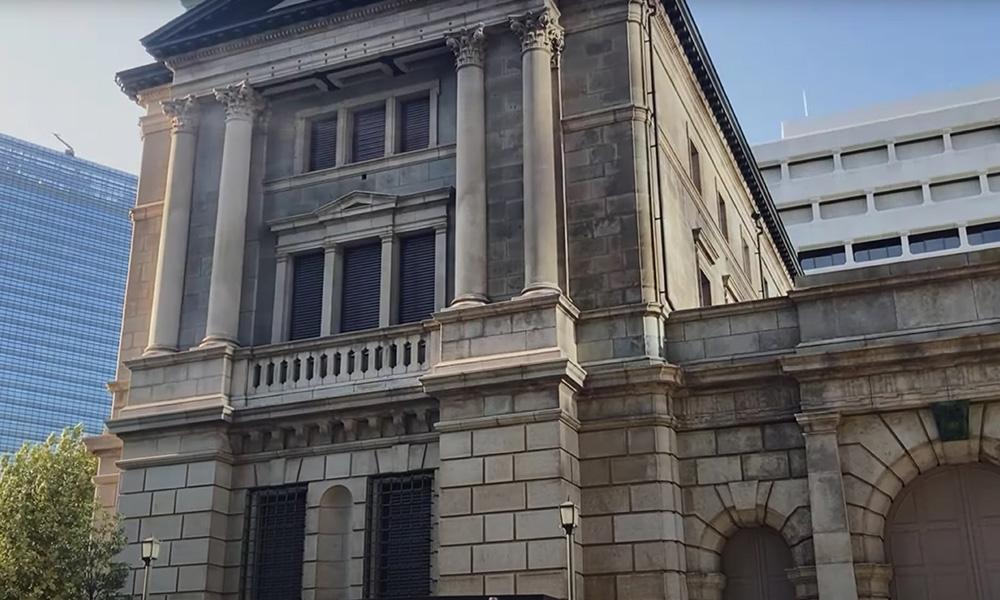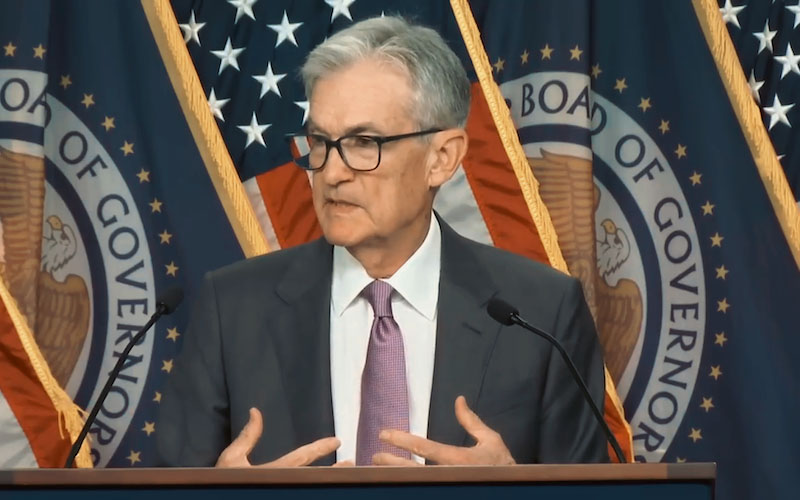During the Bank of Japan's interest rate meeting: the Prime Minister's sudden resignation triggered a political storm, and the economic lifeline is still hanging in the balance!
2025-09-18 14:54:06
However, the good times were short-lived. Earlier this month, Prime Minister Shigeru Ishiba's sudden resignation came as a shock, dashing optimistic expectations for an interest rate hike and sparking widespread concerns about political instability. Speculation has arisen about whether the incoming government will lean toward looser monetary policy, complicating the Bank of Japan's tightening path. At their meetings on Thursday and Friday, Bank of Japan policymakers faced a multiplier of challenges: in addition to the lingering impact of tariff barriers and stubborn inflation, political ambiguity and its potential impact on markets would be central to their weighing of the pros and cons. The outcome of this meeting will not only impact the short-term trajectory of Japanese interest rates but also signal subtle shifts in the economic landscape of Asia and even the world.

A brief ray of hope for a trade deal and a brief frenzy of interest rate hike expectations
Back in July of this year, trade negotiations between Japan and the United States finally concluded with the signing of a key agreement, dispersing the cloud of trade uncertainty that had long lingered over Tokyo. The agreement, which included numerous tariff reductions and market access provisions, directly reduced external pressure on Japanese exporters and provided a boost to the domestic economy.
This was followed by a sharp rebound in market sentiment: investors were betting that the Bank of Japan would accelerate the pace of interest rate hikes to cope with the increasingly stable inflation environment.
Japan's benchmark interest rate has remained at 0.5% since January, but the positive impact of the trade agreement has raised the possibility of a rate hike. Businesses are also showing positive signs, with capital expenditure plans accelerating and wage negotiations intensifying, as if the entire economy is rolling out the red carpet for tighter monetary policy. However, this optimism is not ironclad; it is as fragile as a sheet of paper, vulnerable to shattering at the slightest sign of trouble.
The shock of the prime minister's resignation: How political instability can disrupt the central bank's tightening strategy
At the beginning of this month, Prime Minister Shigeru Ishiba's sudden resignation sent shockwaves through Japanese politics. This decision, stemming from intensified factional fighting within the party and widening disagreements over the direction of economic policy, quickly ignited market fears of political instability.
At the beginning of his term, Shigeru Ishiba promoted a number of pro-market measures under the banner of steady economic reforms. However, his departure has raised concerns about the direction of the new administration's policies. In particular, if his successor favors loose monetary policy to stimulate short-term economic growth, would that force the Bank of Japan to put the brakes on its interest rate hikes?
Sanae Takaichi is one such high-profile potential candidate. She was a strong opponent of Shigeru Ishiba in the last ruling party leadership election. She is known for her hard-line economic nationalism, but has also hinted at a hidden preference for loose monetary policy. The emergence of this political uncertainty has made the already complex economic environment even more difficult.
Bank of Japan policymakers must carefully consider this political ambiguity at their meetings—it could not only amplify market volatility but also indirectly impact business investment and consumer spending through confidence channels. Sources familiar with the central bank's internal dynamics suggest that even with a new prime minister, the BOJ is unlikely to waver in its resolve to raise interest rates. The stubborn persistence of inflation over the past year has been a thorn in the policymakers' minds. If the new government hastily calls for a pause in the tightening cycle, it will likely face a strong backlash from economic data.
Interest rate decision at a crossroads: hidden concerns behind the 0.5% unchanged rate
In the upcoming interest rate decision, the market generally expects the Bank of Japan to choose to remain on hold and continue to maintain the interest rate level at 0.5%.
This is not unexpected, but rather a rational balancing act based on multiple factors. While the July trade agreement brought certainty on the trade front, the subsequent specter of tariff increases casts a shadow over the outlook for the corporate sector. Policymakers are closely watching: Can Japan's corporate activism—from expanding capital expenditures to increasing wage increases—maintain momentum amid rising tariff barriers? If these dynamic factors weaken due to external pressures, the window for interest rate hikes will narrow further. While inflation remains stubborn, further data is needed to confirm its solid foundations.
Central bank officials will not act rashly, preferring a wait-and-see approach, allowing economic indicators to speak for themselves. This caution stems from the vivid memory of global supply chain disruptions and a heightened awareness of fluctuations in the yen exchange rate. In short, while seemingly unremarkable, this interest rate decision is like a crucial move in a game of chess; a single misstep could trigger a chain reaction.
Spotlight on the Governor's Speech: Caution May Douse Interest Rate Hike
Investors' attention will be fixed on the press conference on Friday afternoon, as every word from Bank of Japan Governor Kazuo Ueda may become a barometer for the market .
Analysts at Morgan Stanley MUFG Securities predict that Kazuo Ueda will maintain his characteristically cautious approach, avoiding any comments that could be interpreted as hinting at an October rate hike. He is likely to emphasize how the uncertainty surrounding US trade policy is quietly eroding the resilience of the Japanese economy. If the governor repeatedly mentions these external risks in his speech, the market is likely to turn pessimistic and completely rule out any near-term rate hike.
It's worth noting that the Nikkei's recent record highs are largely driven by expectations of interest rate hikes—if these expectations are shattered, a stock market correction will be inevitable. Ueda Kazuo's statement not only provides technical policy guidance but also psychological reassurance for the market. He is well aware that a careless optimism could lead to a bubble, while an overly conservative statement could exacerbate depreciation pressure on the yen. This press conference will be the biggest suspense of the meeting.
The fog of what's next: Economic trends revealed amid expert disagreements
Looking ahead, the timing of the Bank of Japan's next move remains a focus of debate among observers.
Masahiro Ichikawa, a strategist at Sumitomo Mitsui DS Asset Management, takes a more conservative view, predicting the central bank will maintain policy at least until January. During this period, policymakers will carefully examine a range of economic indicators, including GDP growth, fluctuations in the unemployment rate, and the intensity of next year's wage hike season. Only when these signals all flash green will the tightening cycle resume.
In contrast, Mizuho Securities economist Yusuke Matsuo is more optimistic, pointing out that if the short-term business survey to be released next month and the regional reports of the Bank of Japan branch governors confirm that wages and prices will achieve healthy growth, the probability of an October rate hike will increase significantly.
This divergence reflects the delicate balance currently faced by Japan's economy: on the one hand, the protracted battle against inflation makes austerity measures imperative; on the other hand, the dual uncertainties of politics and trade are binding the central bank's hands like a tight ring.
summary
In summary, this Bank of Japan meeting presents a high-stakes balancing act: With the lingering aftermath of the trade agreement still lingering, the political storm of the prime minister's resignation has already begun. Tariffs, inflation, and policy ambiguity are intertwined, making the path to a rate hike fraught with obstacles. Regardless of the final tone for interest rates, Ueda Kazuo's remarks will serve as a litmus test for the market, and the divergent views among experts serve as a reminder that Japan's economic recovery is bound to be a bumpy road.
Overall, political instability and trade uncertainty are bearish for the yen in the short term. The yen is expected to depreciate slightly against the US dollar in the coming weeks unless the central bank signals a clear interest rate hike or economic data improves beyond expectations. During the Asia-Europe session on Thursday (September 18), the US dollar index continued its overnight rebound, rising 0.4% to 147.53. Investors should closely monitor Friday's press conference and the results of the October Tankan survey to gauge the yen's medium-term outlook.
At 14:52 Beijing time, the USD/JPY exchange rate was 147.39/40.
- Risk Warning and Disclaimer
- The market involves risk, and trading may not be suitable for all investors. This article is for reference only and does not constitute personal investment advice, nor does it take into account certain users’ specific investment objectives, financial situation, or other needs. Any investment decisions made based on this information are at your own risk.





















